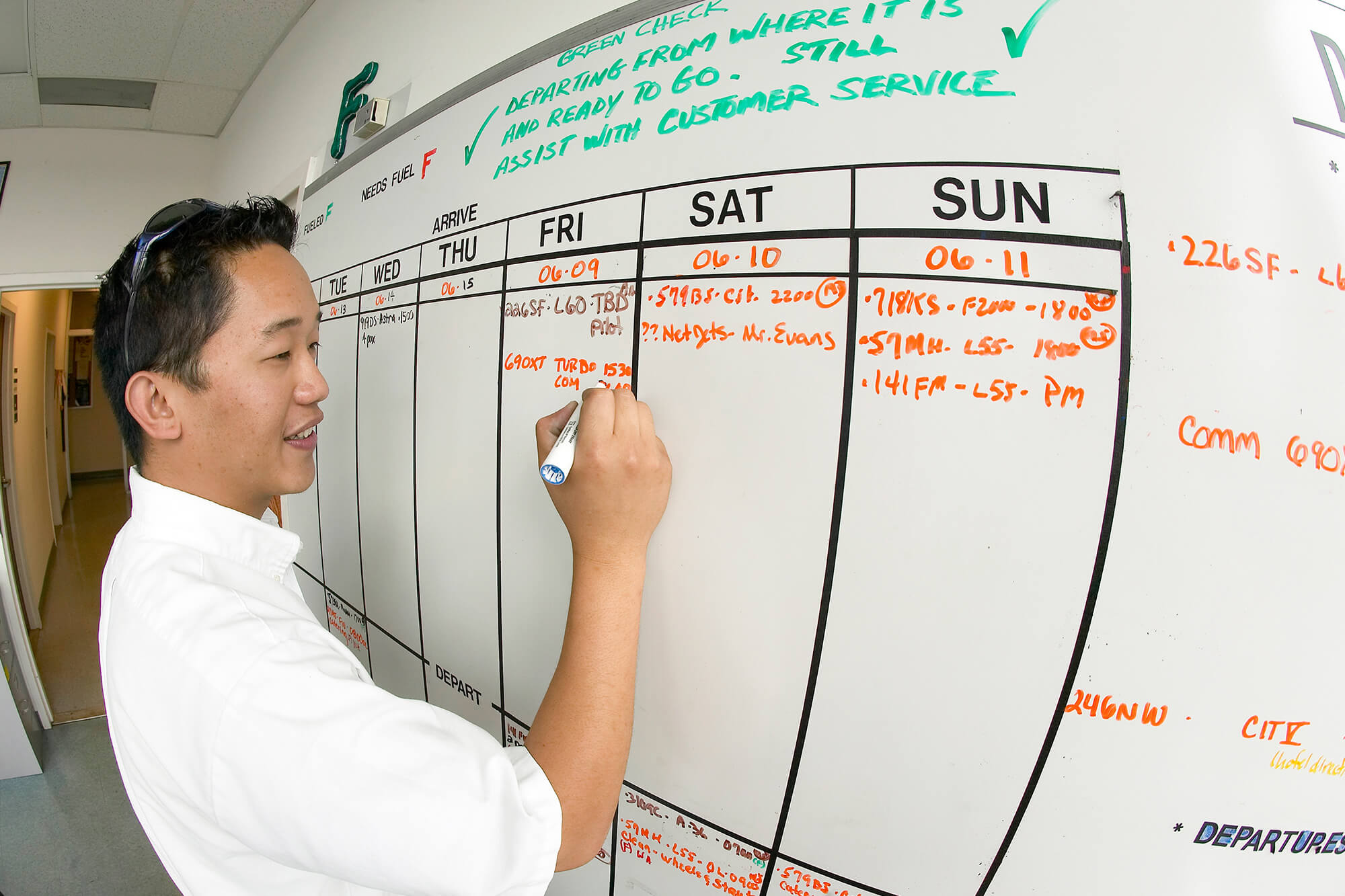

Professional development is key to a successful career as a scheduler.
Aug. 5, 2019
Scheduling and dispatch is a detail-oriented, fast-moving, and often stressful function. Therefore, it is important that schedulers and dispatchers share best practices to not only help meet daily challenges, but also to promote career development.
According to three seasoned schedulers, keeping up with industry changes is an important – but sometimes over-looked – part of the job.
“Being aware of industry issues and educating yourself about the latest changes is important because we need to be proactive,” said Jackie Charles-Spears, senior flight coordinator with Nordstrom Flight Operations. “Things like the temporary closing and then run-way shortening at [California’s] Santa Monica Municipal Airport, or the latest information on traveling to Canada, are important for us to know.”
Both Charles-Spears and Christopher Algee, manager of flight scheduling and dispatch at Encompass Health, agree that some of the best ways to keep
up-to-date with industry changes are to:
- Regularly visit NBAA’s website
- Utilize NBAA Air Mail (a members-only social network for collaboration and discussion)
- Read aviation industry trade publications
- Monitor social media
- Join and network with regional business aviation groups
In particular, schedulers and dispatchers should take advantage of the various regional scheduler and dispatcher groups around the country, such as a group that meets quarterly in the St. Louis area.
“We discuss everything from DCA [Ronald Reagan Washington National Airport] authorization to slots into Geneva [Switzerland],” said Nancy Berryman, flight operations manager at Bayer Monsanto Company. “The group is enormously helpful in keeping up with industry changes.”
PROFESSIONAL DEVELOPMENT
Hand in hand with keeping up with industry changes is the best practice of continuous professional development.
“It’s so important to keep educating yourself, advocating for yourself and networking with others in the industry,” said Algee. “Events like NBAA’s Schedulers & Dispatchers Conference and Leadership Conference, the Women in Aviation Conference, and obtaining NBAA’s Certified Aviation Manager credential or a dispatcher’s license (if you don’t already have one) are great ways to enhance your knowledge.”
Algee also recommends getting to know your NBAA regional representative. “What better person is there to interact with who knows the heartbeat of aviation in their region?”
Understanding your emergency response plan and keeping it current is also a best practice, said Charles-Spears, whose goal is to do a tabletop exercise each year and include key employees from human resources.
Establishing good relationships with members of your aviation team is another key to being a successful manager, according to Berryman.
“From just showing up with a Starbucks [coffee] for them, to helping others on your team with their professional development, will enhance the team’s overall effectiveness and reduce job turnover,” she said.


 International Business Aviation Council Ltd.
International Business Aviation Council Ltd.